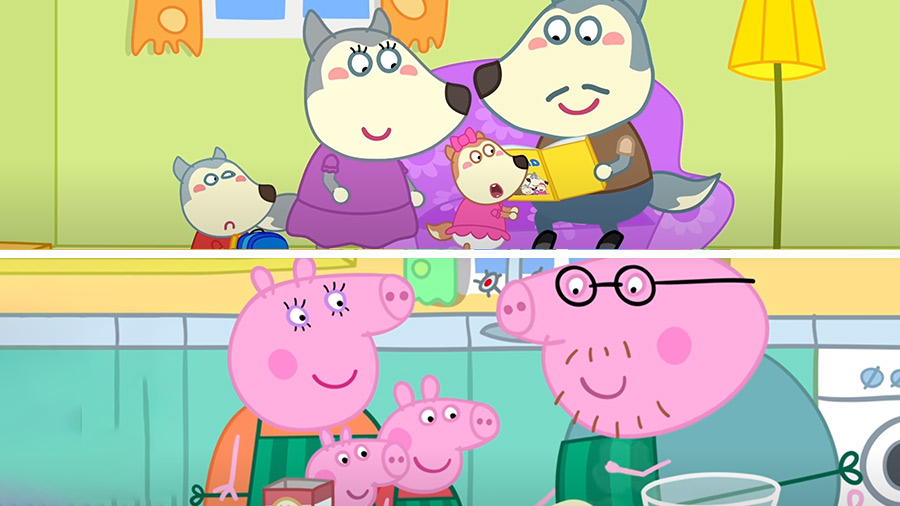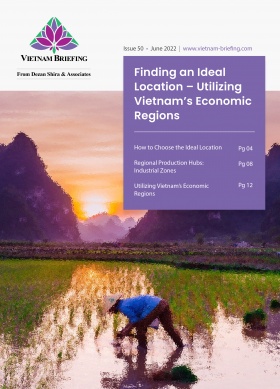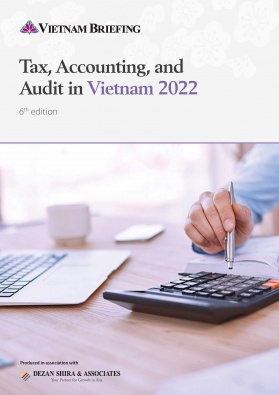IP in Vietnam: One Little Pig and a Big Bad Lawsuit

Intellectual property (IP) law reform and enforcement in Vietnam has been at the center of a broad range of trade agreements the country has signed onto. But change has been slow, and enforcement has been lacking. Here’s how a spat between a cartoon wolf and a cartoon pig could change that.
The owners of the UK’s Peppa Pig, EOne, are suing Vietnam’s Sconnect, the owners of popular YouTube cartoon Wolfoo, alleging trademark and copyright infringement. More specifically, EOne is alleging Sconnect created Wolfoo to look and feel like Peppa Pig to imply the two cartoons were connected.
In its complaint, EOne claims that parts of Wolfoo’s audio have been taken directly from episodes of Peppa Pig and that images of Peppa Pig herself appear on items like clocks and watering cans in the background of Wolfoo videos.
This is currently before the courts in the UK.
But the courts have not been EOne’s only means of recourse.
YouTube, for example, took down 2,000 Wolfoo videos from August to October this year for copyright infringement at the request of EOne. This cost Sconnect US$2 million in lost revenue up to October, according to their own estimates.
In response, Sconnect has made overtures to the Vietnamese government looking for support. It has also countersued in Vietnam and has launched a lawsuit in Russia where, earlier in the year, a copyright infringement case brought by EOne was dismissed in response to sanctions imposed over the war in the Ukraine.
The big test, however, will be in the England and Wales High Court, the birthplace of modern intellectual property law.
Though a negative outcome for Wolfoo could mean a blow to concentrated efforts by Vietnam to clean up its IP image, it could also serve to raise IP awareness among the greater population, which could pay dividends for IP owners.
IP reform in Vietnam: The story so far
Vietnam has historically been known as an epicenter for cheap knockoffs and fakes.
In Hanoi’s Old Quarter, a pair of Converse All-stars costs around US$20–considerably cheaper than the US$80 they cost in genuine Converse retail stores. Fake handbags the likes of Gucci and Prada can also be bought for a fraction of the cost of the real thing from blue tarpaulins laid out on the side of the capital city’s streets.
But this may be the twilight of Vietnam’s love affair with finding ways around paying full price. A broad range of agreements are giving international brands and content producers the means to push authorities to act against intellectual property theft.
Digital piracy in Vietnam, for example, was dealt a blow when the Office of the US Trade Representative listed Vietnamese unauthorized movie and TV streaming site, Phimmoi in its 2021 Review of Notorious Markets for Counterfeiting and Piracy.
Helped along by a number of film distributors petitioning the Department of Radio, Television and Electronic Information to take action against the site, Phimmoi was subsequently taken down.
Notably, this has not put an end to Phimmoi in its entirety with the site reappearing under a slightly different domain name shortly thereafter and continuing to reappear each time it is removed.
Vietnam is also still on the Office of the US Trade Representative’s Special 301 Report Watchlist with “the use of piracy devices and applications to access unauthorized audiovisual content, [remaining] a significant concern.”
But it is still a step in the right direction.
Furthermore, last year alone, of 24 accusations of intellectual property infringement in Vietnam, 19 made it to court. For contrast, there were just 30 accusations made for the entire period between 2011 and 2020, of which 21 made it to court, according to the Ministry of Science and Technology’s Inspectorate.
A slew of new amendments to the Intellectual Property Law were also ratified earlier this year, which are set to further strengthen the legal framework applied to cases of IP infringement.
These amendments clarify: copyright ownership, industrial design protections, and enforcement of intellectual property rights and have been structured to bring Vietnam’s IP management more inline with international standards. (Our sister publication ASEAN Briefing has a detailed breakdown. See: Vietnam’s Intellectual Property Law: New Amendments)
Attitudes toward IP protections in Vietnam
But truly resolving Vietnam’s IP issues may take more than simply prosecuting and punishing offenders.
Intellectual property infringement, in Vietnam, has in many ways become normalized.
An Asia Video Industry Association’s Coalition Against Piracy survey conducted by YouGov in 2021 found that 60 percent of Vietnamese admitted to streaming pirated content.
Likewise, the creative directors of a video clip for Vietnamese pop-star AMEE copied very deliberately from Taylor Swift’s Blank Space video clip.
“We thought: Why not?” a spokesperson for AMEE told Zing.
Changing these attitudes will be crucial to strengthening IP protections in Vietnam and high-profile cases like EOne’s case against Wolfoo may help to do just that.
“We believe this case has attracted the attention of content creators in Vietnam and has also increased their IP awareness,” Yen Pham, trademark head and senior IP attorney at Schmitt & Orlov Southeast Asia, told Asia IP.
Notably, the learning outcomes from this lawsuit will likely extend beyond IP protections and impact Vietnam’s creative industries and businesses engaged in cross border trade in services as well.
This is made all the more important by the fact that Vietnam is determined to transition its economy from a low-cost manufacturing base, to a high-tech, innovation powerhouse which will require strong IP protections.
Vietnam’s IP future
Regardless of the outcomes of EOne’s case against Sconnect in the UK, the fact that action has been taken will have an impact in and of itself. That international rules will be applied and that an outcome will be rendered will serve to promote greater understanding of IP law in the Southeast Asian nation.
Moving forward, content producers in Vietnam will be following the case closely and reassessing their business models and processes to ensure they are not ensnared in a similar conflict.
And for foreign firms this can only be a good thing, greater awareness and understanding serving to prevent IP infringement before it occurs, reducing the need for prosecution and reassuring IP owners that their films, brands, and designs alike are protected in Vietnam.
About Us
Vietnam Briefing is published by Asia Briefing, a subsidiary of Dezan Shira & Associates. We produce material for foreign investors throughout Eurasia, including ASEAN, China, India, Indonesia, Russia & the Silk Road. For editorial matters please contact us here and for a complimentary subscription to our products, please click here.
Dezan Shira & Associates provide business intelligence, due diligence, legal, tax and advisory services throughout the Vietnam and the Asian region. We maintain offices in Hanoi and Ho Chi Minh City, as well as throughout China, South-East Asia, India, and Russia. For assistance with investments into Vietnam please contact us at vietnam@dezshira.com or visit us at www.dezshira.com
- Previous Article Permanent Court of Arbitration Opens New Office in Hanoi
- Next Article Explainer: Vietnam’s Second Land Rent Cut for Groups Affected by COVID-19































